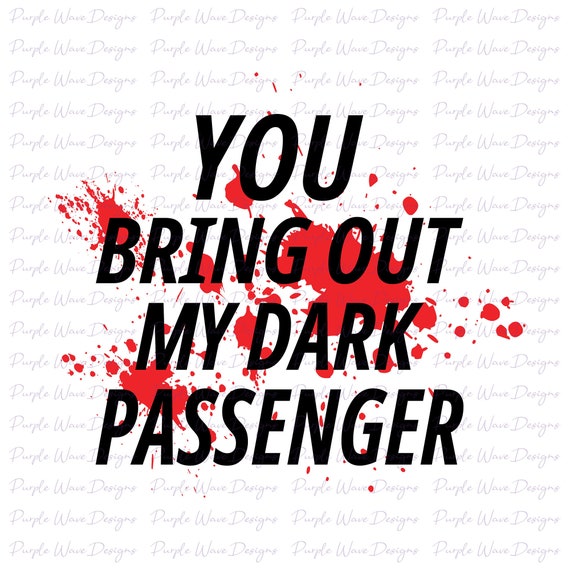Embracing My Dark Passenger: A Journey Through Addiction and Recovery
Warning: This post contains dark humor and an even darker passenger. Proceed with caution.
I'm not a serial killer, but I do have a "dark passenger." It's not the kind that kills people, but the kind that kills relationships, opportunities, and occasionally tries to kill me. If you've watched the show Dexter, you know what I'm talking about. For those who haven't, let me explain: My addiction is my dark passenger.
It's the constant companion whispering terrible ideas into my ear, the shadow looming over my shoulder, the voice telling me to make that impulsive decision I'll definitely regret later. It's the part of me that doesn't want to get better, the part that sabotages my progress and convinces me to pick up a drink/drug/poor life choice again.
For a long time, I hated this part of myself. I felt ashamed and broken, like I was forever chained to this destructive force inside my head. But then something shifted. I realized that my dark passenger wasn't the enemy - it was just a really shitty travel companion. And I wasn't going to get rid of it, no matter how hard I tried. So, I decided to do the unthinkable: I made friends with the bastard.
This doesn't mean I started actively listening to its terrible advice (although, let's be real, sometimes I still do). It means I stopped fighting it, hating it, and shaming myself for having it in the first place. I learned to acknowledge it, to say, "Oh, you're back, huh? Feeling a little restless today?" And then I'd invite it to take a seat in the back of the bus while the rational part of my brain got to drive for a while.
But here's the thing: Making friends with your dark passenger isn't a one-time event, it's a process. It takes work, patience, and a whole lot of self-compassion. It means learning to say "Fuck you" to the shame and stigma that's haunted you for so long. It means realizing that your dark passenger isn't a definition of your worth, but a twisted expression of your deepest pain.
And it means growing. Oh, does it mean growing. It means looking at that broken, hurting part of yourself and instead of judgment, offering it understanding. Instead of rejection, offering it compassion. And instead of trying to destroy it, figuring out how to transform it.
For me, that transformation looked like channeling my addictive energy into healthier obsessions - like writing, music, and true crime podcasts (ironically enough). It looked like learning to recognize the lies my dark passenger told me and counter them with truth. And it looked like creating a life so full of purpose and connection that my dark passenger became a backseat driver instead of the guy behind the wheel.
Recovery isn't about exorcising your demons, it's about learning to travel with them. It's about understanding that your dark passenger is just a part of the trip, not the destination. And the destination? It's a life of purpose, connection, and growth - even with that pesky shadow tagging along. It's the realization that no matter how broken you feel, you are not beyond repair. You are capable of change, of growth, of transformation.
So, if you're sitting there feeling like a flawed, broken, addicted mess, just know this: you aren't alone. We all have our dark passengers. And while they might drive us crazy sometimes, they don't define our journey. We do. One (sometimes faltering) step at a time. And if you're ready to start that journey, to make friends with your own dark passenger and show it who's boss, then strap in. It won't be easy, but I promise you this: It will be worth it.
Ready to start your own journey and learn to travel with your dark passenger? Here are some next steps:
- Find a therapist: They're like a GPS for navigating your dark passenger. Trust me, you need one.
- Support groups: These are the fellow travelers who get it. Don't be afraid to roll down your window and ask for directions.
- Self-care: Sometimes, your dark passenger just needs a time-out. Meditation, exercise, and ice cream are all great options.
- Find your "why": What's driving your desire to get better? Is it your kids, your health, your dreams? Whatever it is, let that be the fuel that keeps you moving forward.
- Celebrate the wins: Recovery isn't a straight line, it's a messy, beautiful mess of a journey. Don't underestimate the power of celebrating those tiny victories along the way.
And hey, if you're feeling brave, share about your own dark passenger in the comments. Let's shed some light on these pesky shadows and remind each other that we're not alone. That we're in this together. And that no matter how broken we may feel, we are capable of incredible growth, transformation, and change.-Belle-













